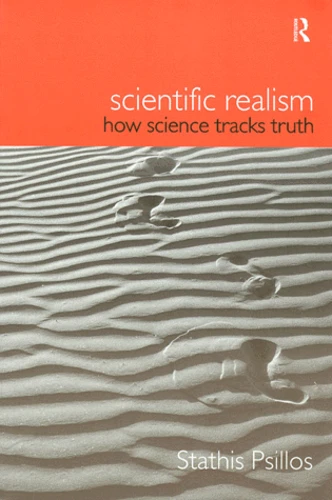Scientific Realism. How Science Tracks Truth
Par :Formats :
Définitivement indisponible
Cet article ne peut plus être commandé sur notre site (ouvrage épuisé ou plus commercialisé). Il se peut néanmoins que l'éditeur imprime une nouvelle édition de cet ouvrage à l'avenir. Nous vous invitons donc à revenir périodiquement sur notre site.
- Paiement en ligne :
- Livraison à domicile ou en point Mondial Relay indisponible
- Retrait Click and Collect en magasin gratuit
- Réservation en ligne avec paiement en magasin :
- Indisponible pour réserver et payer en magasin
- Nombre de pages341
- PrésentationBroché
- Poids0.625 kg
- Dimensions15,7 cm × 23,4 cm × 1,9 cm
- ISBN0-415-20819-X
- EAN9780415208192
- Date de parution21/10/1999
- ÉditeurRoutledge
Résumé
Scientific realism is the optimistic view that modern science is on the right track; that the world really is the way our best scientific theories describe it. In his book, Stathis Psillos gives us a detailed and comprehensive study which restores the intuitive plausibility of scientific realism. We see that throughout the twentieth century, scientific realism has been challenged by philosophical positions from all angles: from reductive empiricism, through instrumentalism to modern sceptical empiricism.
Scientific Realism explains that the history of science does net undermine the arguments for scientific realism, but instead makes it reasonable to accept scientific realism as the best philosophical account of science, its empirical success, its progress and its practice.
Anyone wishing to gain a deeper understanding of philosophical debates about the state of modern science, and why scientific realism is plausible, should read this book.
Scientific realism is the optimistic view that modern science is on the right track; that the world really is the way our best scientific theories describe it. In his book, Stathis Psillos gives us a detailed and comprehensive study which restores the intuitive plausibility of scientific realism. We see that throughout the twentieth century, scientific realism has been challenged by philosophical positions from all angles: from reductive empiricism, through instrumentalism to modern sceptical empiricism.
Scientific Realism explains that the history of science does net undermine the arguments for scientific realism, but instead makes it reasonable to accept scientific realism as the best philosophical account of science, its empirical success, its progress and its practice.
Anyone wishing to gain a deeper understanding of philosophical debates about the state of modern science, and why scientific realism is plausible, should read this book.

